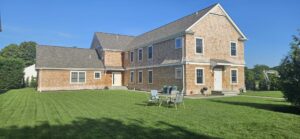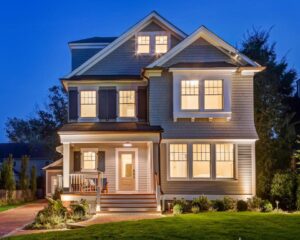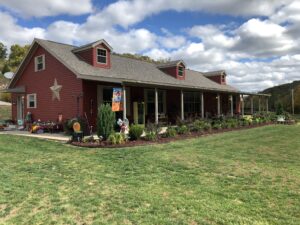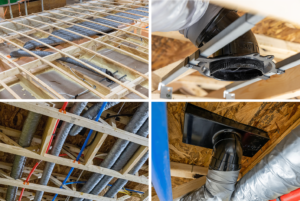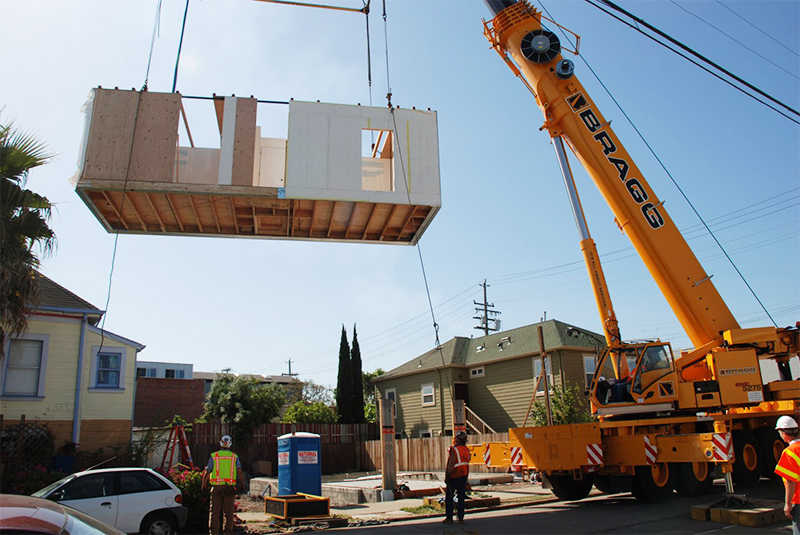
Creating Affordable Energy-Efficient Housing Through Modular Building
It feels like everyone — consumers and contractors alike — is looking for ways to improve their homes’ energy efficiency. Thanks to climate change, dangerously hot summers and brutally cold winters make it more challenging to keep structure interiors comfortable.
Some people are approaching the problem from a different perspective. Could modular building provide the solution to our collective energy-efficient housing problem? It seems possible. Here’s what you need to know about this eco-friendly construction method.
What Impacts a Home's Energy Efficiency?
Understanding the impact of modular building on a home's energy efficiency is only one piece of the puzzle. Other design aspects also play a role in whether a structure can be considered efficient or not. These include:
- Framing: Reducing the amount of lumber necessary to frame a house without compromising its structural integrity creates more room for insulation, improving the home's energy efficiency.
- Roofing: Dark-colored roofs absorb heat, increasing a home's interior temperature during the summer. Cool roofs, designed with reflective materials, can mitigate this heat gain.
- Doors and windows: Doors and windows are often some of the biggest offenders regarding heat loss and compromised energy efficiency.
- Ducting: HVAC relies on sealed ductwork to move hot or cold air through the house. An improper seal could compromise the home's energy efficiency, reducing the air pressure in the system.
- Building materials: Recycled or sustainable materials can also offer some of the best energy efficiency while working to reduce the project's overall carbon footprint.
This list isn't exhaustive by any means, but it does help lay the foundation for modular building and prove why it may be the best construction method for the environment.
Defining Modular Construction
Industry professionals define modular construction as a process in which a building is constructed off-site, under controlled plant conditions, using the same materials and designing to the same codes and standards as conventionally built facilities. Large sections of a structure can be assembled in a manufacturing plant and then shipped to the final construction site for assembly.
Note that modular construction is distinctly different from manufactured homes, which are assembled in their entirety off-site before being transported to their final destination and installed.
Combatting the Housing Crisis
Real estate has always represented a substantial investment, but if you or someone you know is struggling to find a place to live in 2022, you’re not alone. Even the most affordable cities in the country are facing a housing crisis. Currently, the United States is short more than 3.8 million homes to meet growing housing needs — nearly double the number in 2012. If housing is available, it’s often unaffordable due to rising rents and landlords or property managers leaning into price gouging trends.
Financial aid might seem like the best way to keep people in their homes, but it isn’t affordable or feasible in the long run. Could modular construction be the solution to combat the growing housing crisis?
Modular housing is ideal for people looking for an affordable and accessible way to build a home. Companies can use pre-construction software to design space- and energy-efficient houses that cost a fraction of what you’d spend on a traditional residence before the first piece ever rolls off the assembly line.
Improving energy efficiency can help reduce cost-of-living expenses by lowering electricity bills as well as heating and cooling costs. Summer heat waves are getting warmer every year, making this technology beneficial. In parts of the country that don’t normally need air conditioning, it could even keep people comfortable or save lives as temperatures spike.
Even with the number of construction companies in the country, traditional techniques are too slow to keep up with the growing housing crisis. Modular building isn’t the best choice for people who want to design every element of their dream home. However, it could reshape the industry for those looking for a new place to rent or individuals who may not otherwise be able to afford a traditionally constructed home.
The housing crisis isn’t going away anytime soon, and overcoming this challenge will take time and effort. Modular construction seems poised to take on some of this burden and provide affordable residences for more people.
The Impact of Modular Building on Energy Efficiency
Modular construction projects are often designed with energy efficiency in mind. Joints and connection points are more airtight, and their insulation layout is optimized before the first wall is framed. Some prefabricated structures even include energy-efficient options like LED lighting or Energy Star appliances as part of the finished product.
Shorter deadlines and fewer on-site workers help make the entire project more energy-efficient, shrinking its carbon footprint and making it better for the environment.
The massive modular construction market was valued at $72.11 billion in 2020. It's looking at a compound annual growth rate (CAGR) of 6.1% between 2021 and 2028. It will likely become a more prominent facet of the building industry moving forward and may support a more affordable and energy-efficient housing future.
Creating a Greener Future
Energy-efficient homes will become necessary for comfort and survival as climate change brings us hotter summers and colder winters. Manufacturing sections of a new building in a factory makes the job easier and faster, reducing the time it takes to get a home ready for tenants to move in. Manufactured housing will likely play an enormous role in creating a greener and more energy-efficient future.
Learn More From MHBA
Modular Home Lending Solutions: A Conversation with Tom Coronato of CalCon Mortgage
At a time when modular construction continues to gain momentum nationwide, it’s critical to have lenders who understand the unique needs of offsite building. In a recent conversation with Tom Coronato, Senior Vice President of the Offsite Modular Division at CalCon Mortgage, we discussed what sets modular home lending apart-and how CalCon is helping builders…
Modular Construction in New York | Cedar Knolls Homes, Inc.
Delivering modular solutions for single- and multi-family residential and critical staff housing needs in New York Established in 1993, Cedar Knolls Homes, Inc. has grown from a traditional home builder to a premier modular construction company serving much of Long Island and the Western Catskills of New York. For over 15 years, Cedar Knolls has…
Apex Homes of PA: Expanding Modular Solutions for 2025
Apex Homes of PA, a modular home manufacturer based in Middleburg, Pennsylvania, continues to provide custom modular housing solutions for the East Coast. Founded in 1990, the company reported nearly $30 million in sales in 2024, surpassing its goals by more than $2 million despite operating below full production capacity. Serving markets from Maine to…
Governor Mills Cuts Ribbon on Affordable Rental Housing Complex in Newcastle
Governor Mills Cuts Ribbon on Affordable Rental Housing Complex in Newcastle July 29, 2025 The 16-unit development is among more than 400 new apartments in Maine supported by the Rural Affordable Rental Housing Program Newcastle, MAINE — Governor Janet Mills today cut the ribbon on a new 16-unit affordable apartment complex in downtown Newcastle. The project…
Keystone Building Products: Supplying the Modular Housing Industry Since 1996
Keystone Building Products: Supplying the Modular Housing Industry Since 1996 Founded in 1996, Keystone Building Products, Inc. supplies materials to the manufactured and modular housing industries, as well as professional builders. Operating from locations in Selinsgrove, Pennsylvania, and Salisbury, North Carolina, Keystone offers a range of building products, including exterior and interior doors, windows, siding,…
Pleasant Valley Homes: Building “Dream Homes for Life”
Pleasant Valley Homes: Building “Dream Homes for Life” Pleasant Valley Homes, Inc. is a family-owned and operated wholesale modular home producer based in Pine Grove, Pennsylvania. Leveraging over thirty years of quality, experience, and capability, the company delivers modular building solutions for today’s homebuyers. Every home is designed and precision-engineered in-house, then constructed in a…
D&W Homes: A Smarter Way to Build
D&W Homes: A Smarter Way to Build Founded in 1977, D&W Homes has grown to become the largest modular home builder in Southeast Ohio, with three locations across Southern Ohio and West Virginia. As a family-owned company, D&W Homes has earned the trust of homeowners throughout Ohio, West Virginia, and Kentucky for nearly five decades. What makes…
360Connect – Verified Lead Generation for Modular Home Suppliers
360Connect: Helping Suppliers Grow with High-Quality Leads Since 2006, 360Connect has connected B2B suppliers with verified, high-intent buyers across a variety of industries, including modular buildings, modular homes, storage containers, mobile offices, and more. The company’s lead generation platform is designed to save suppliers time and resources by delivering pre-qualified leads from prospects actively searching…
Rheia: Revolutionizing Modular HVAC for Efficiency, Comfort, and Performance
Rheia: Smart HVAC Solutions Purpose-Built for Modular Construction Rheia provides an advanced air distribution system designed specifically for modular homebuilders-blending factory efficiency, consistent comfort, and energy performance. Why Rheia Fits Modular Needs Rheia’s innovative system is engineered for indoor assembly, making it a natural fit for modular construction. Its small-diameter, snap-fit ductwork is lightweight, easy…
About the Author: Rose Morrison is a freelance writer and designer with a background in construction You can contact her at rose@renovated.com.
